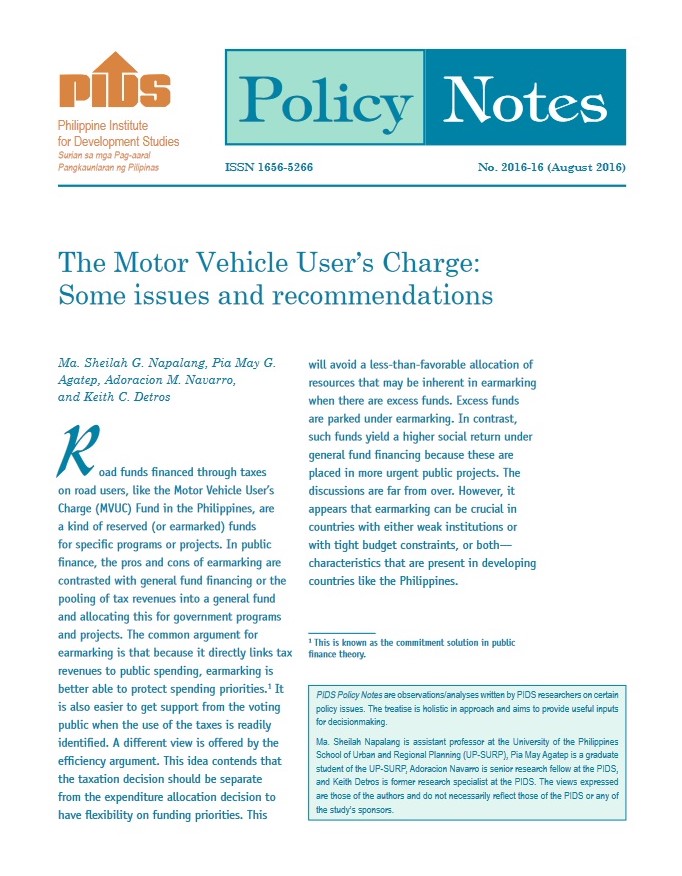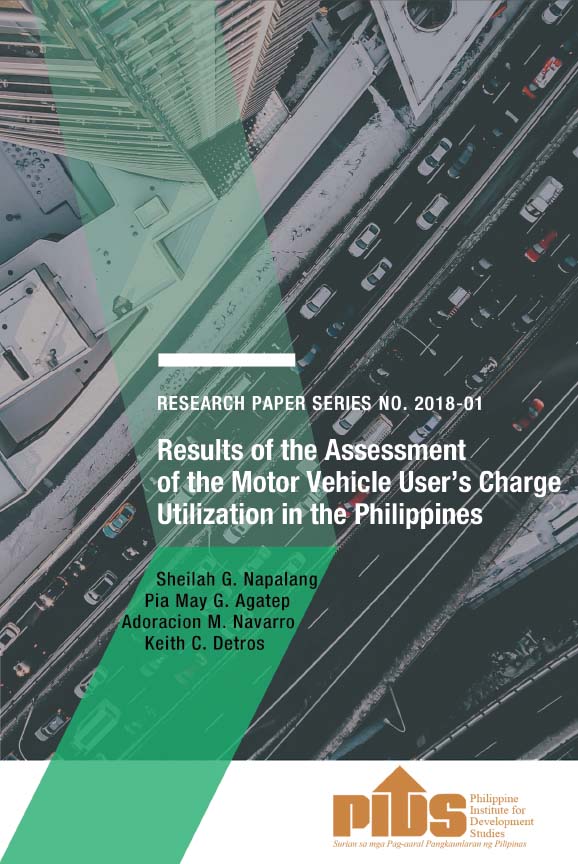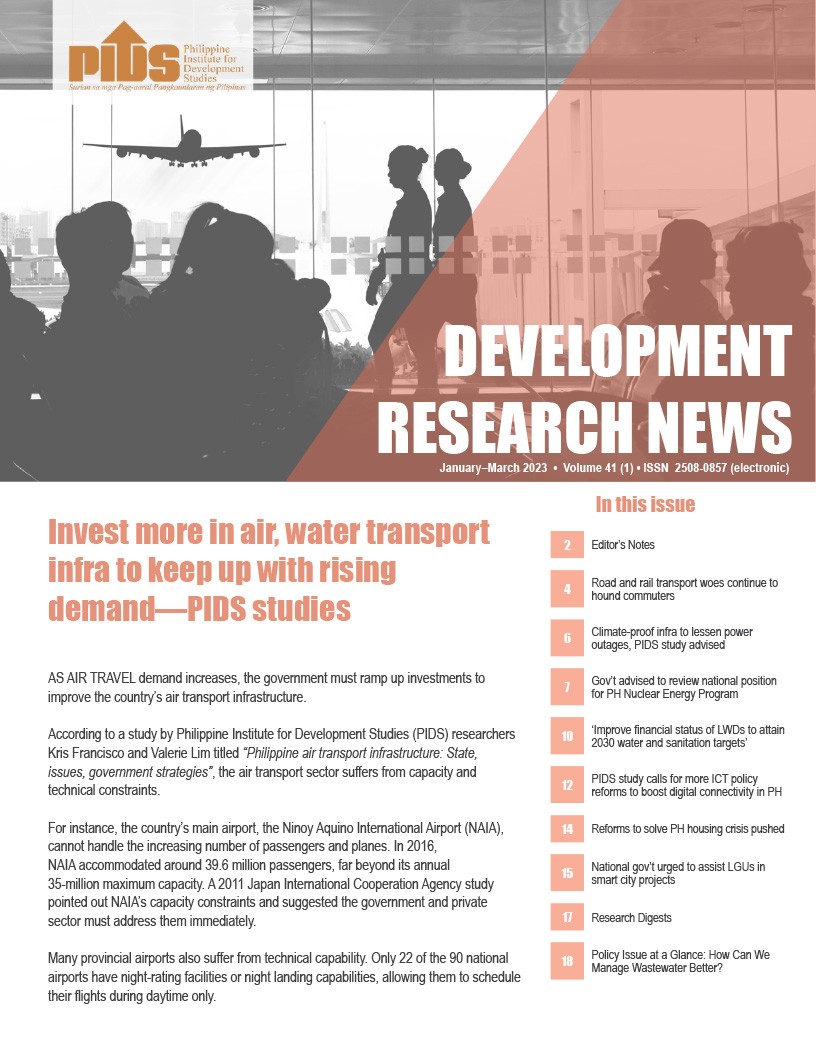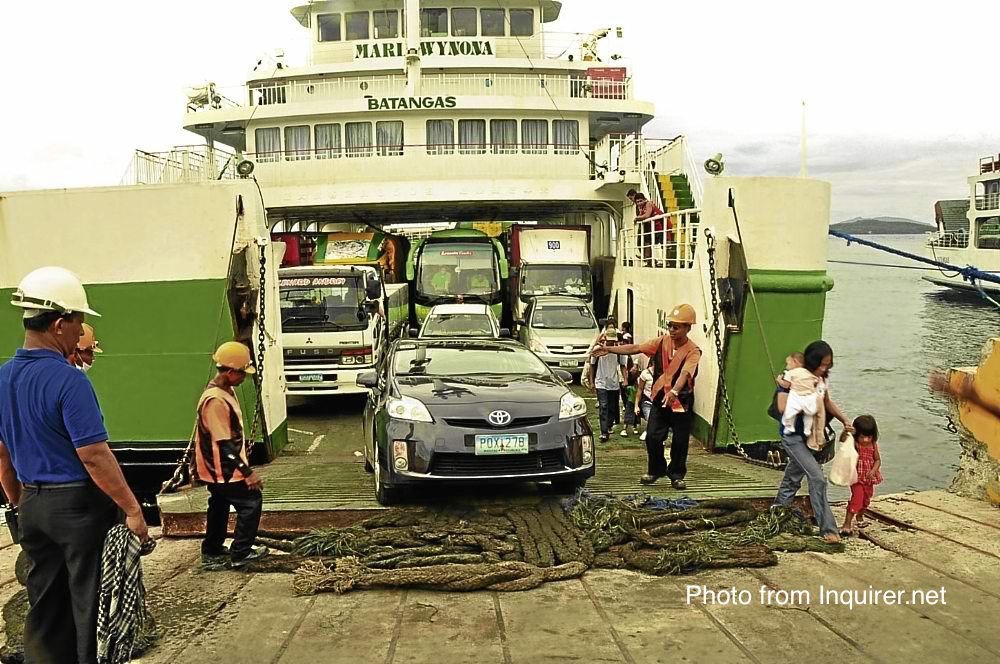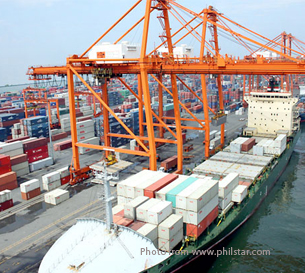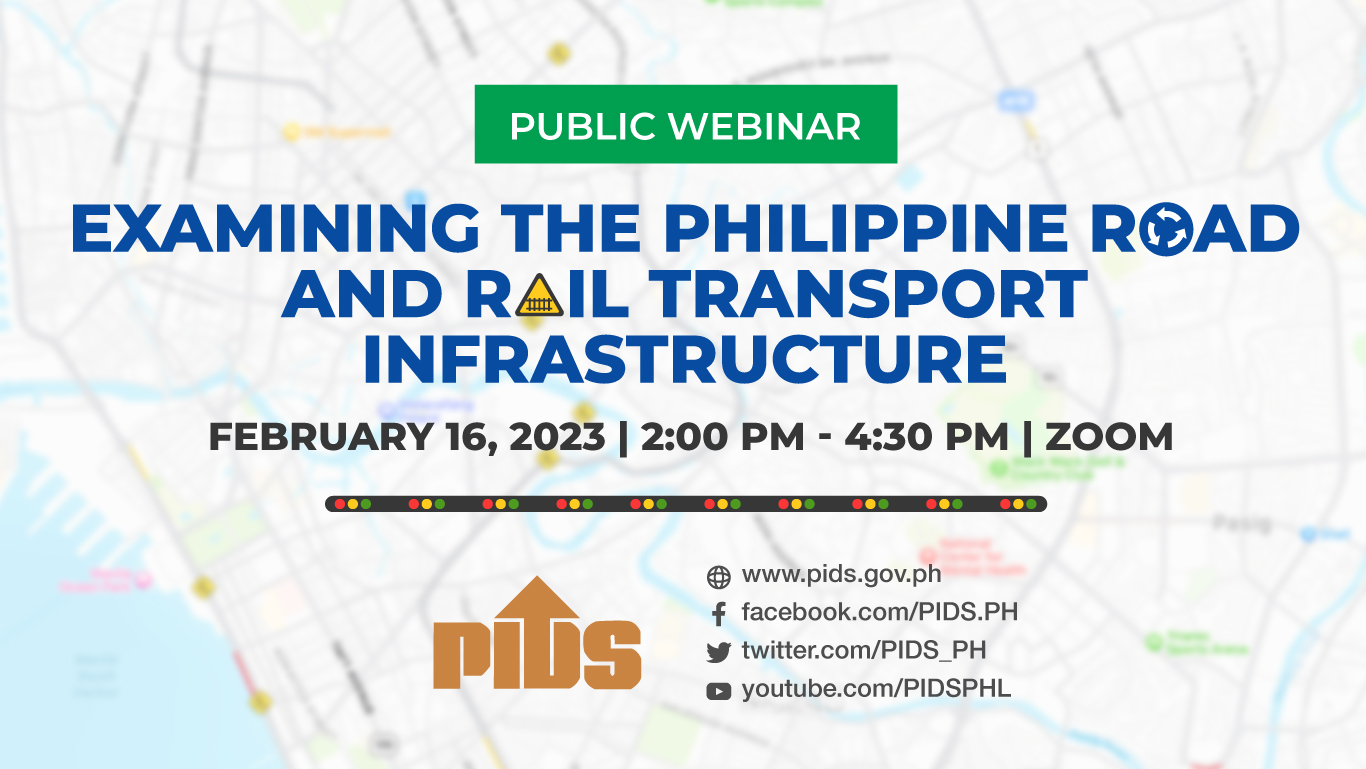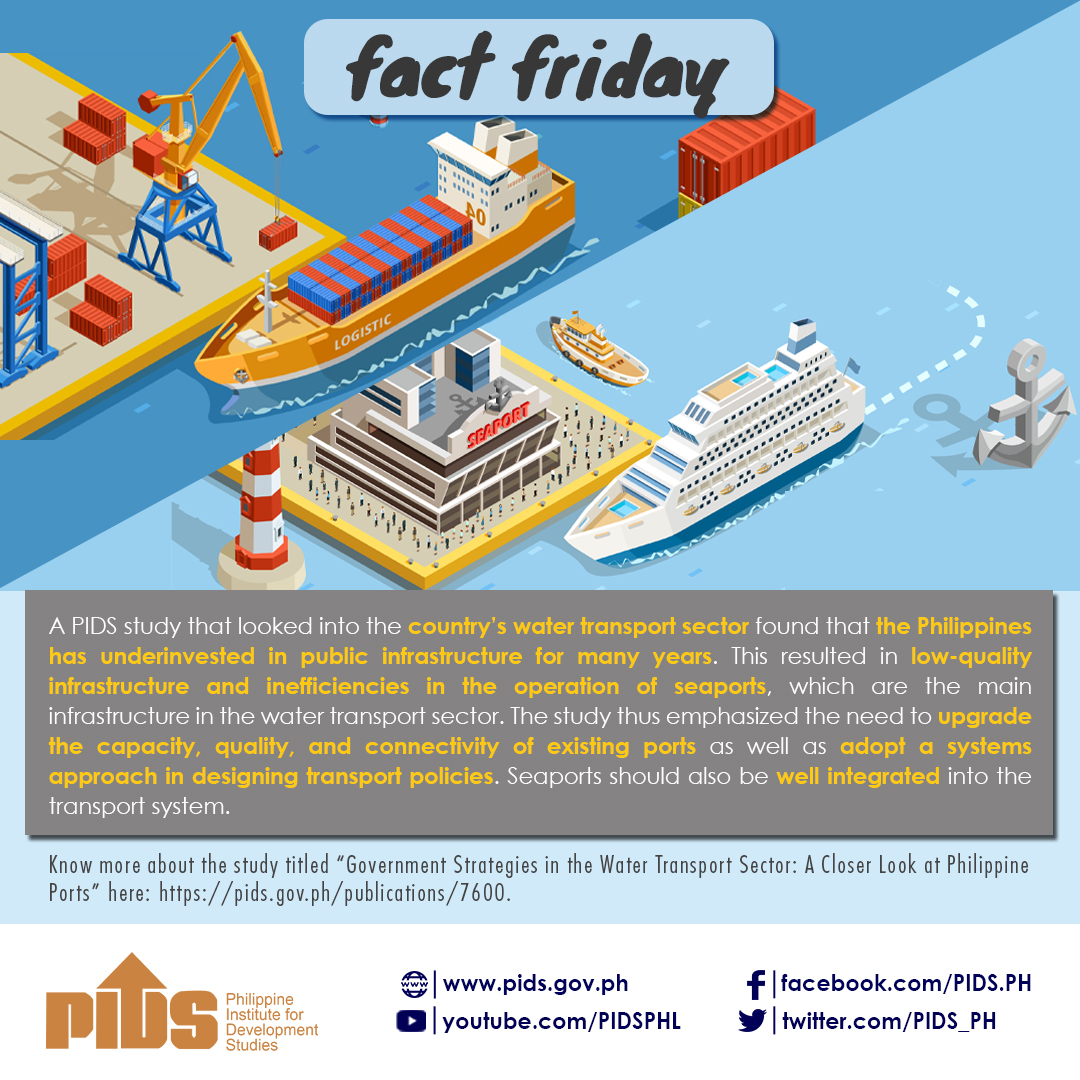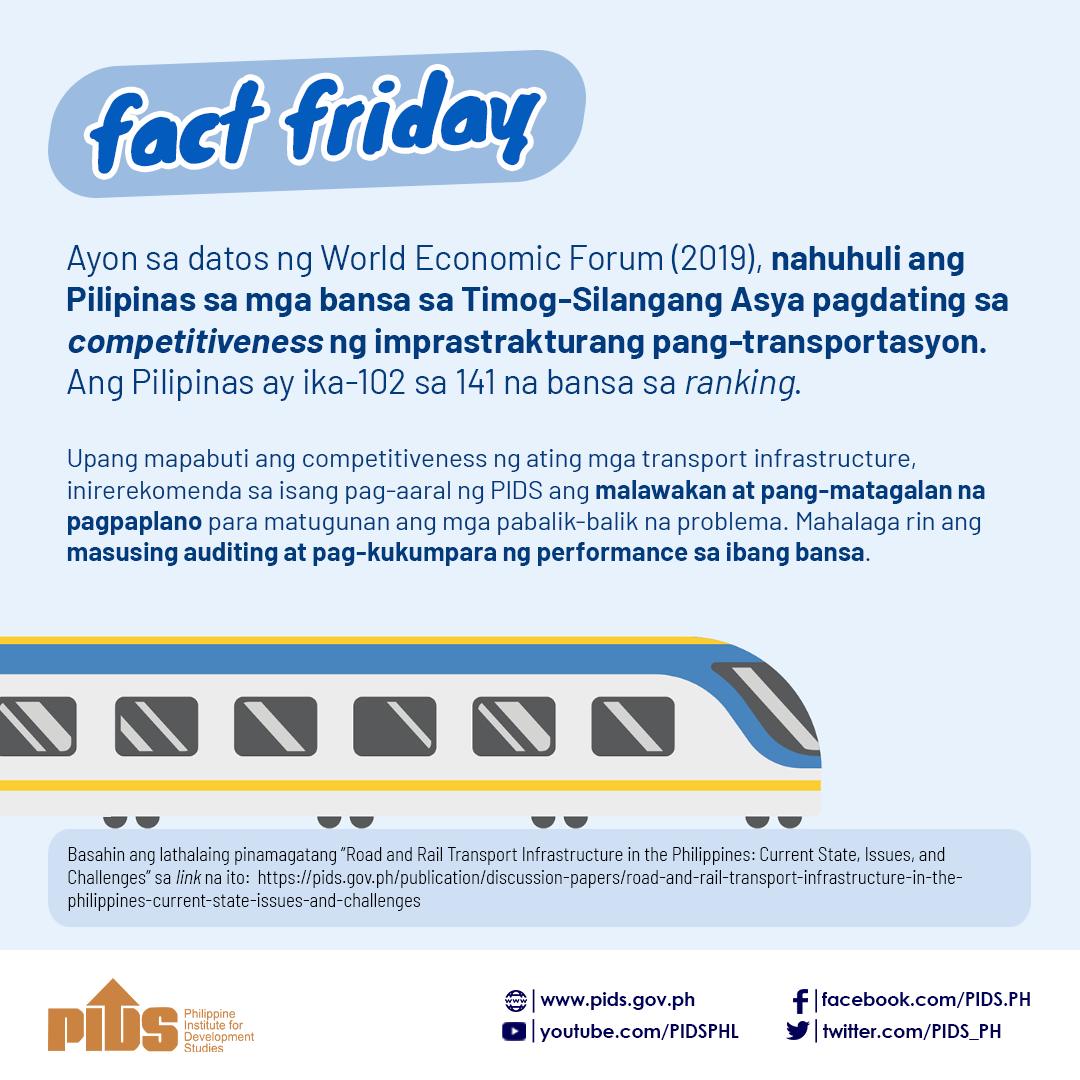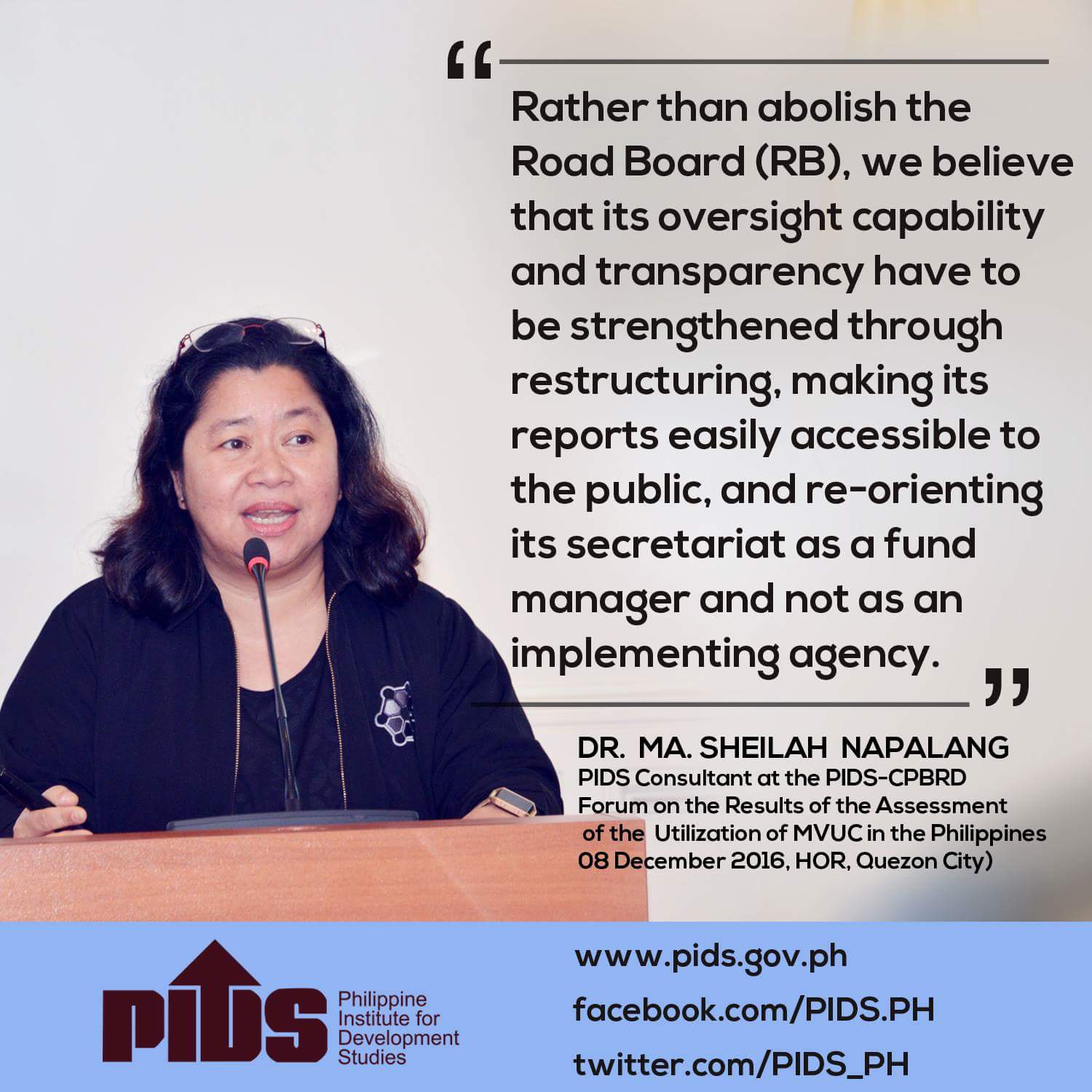
To improve the effectiveness and efficiency of the collection and disbursement of the Motor Vehicle User’s Charge (MVUC) fund, a study by state think tank Philippine Institute for Development Studies (PIDS) is calling for greater transparency and accountability among government agencies involved in the program.
The call was in response to allegations of misuse and politicized allocation of the MVUC fund. For example, a 2009 World Bank study noted that MVUC funds were used to fund employment-generating roadside maintenance programs such as sweeping, beautification, and planting.
The MVUC, which is imposed through the registration fees of vehicles and penalties for overloading and collected by the Land Transportation Office (LTO), is envisioned as a new source of funding to finance road maintenance and minimize air pollution. MVUC is considered the third biggest source of tax revenue for the government, contributing an additional 40 percent of available funds for maintenance of national roads.
According to Republic Act (RA) 8794, funds collected from the MVUC should be placed in four special accounts in the National Treasury, namely, Special Road Support Fund (80%), Special Local Road Fund (5%), Special Vehicle Pollution Control Fund (7.5%), and Special Road Safety Fund (7.5 %). The tax forms the bulk of the annual motor vehicle registration.
The law also created the Road Board to ensure the prudent and efficient management and utilization of the Motor Vehicle User's Charge fund. It is assisted by the Road Board Secretariat (RBS) that is responsible for the implementation of the Board decisions and the day-to-day operation of the management of the Special Funds.
In a recent forum at the House of Representatives, PIDS Consultant and UP National Center for Transportation Studies Director Ma. Sheilah Napalang noted that recording of MVUC deposits can be made transparent and efficient through automation, regular reconciliation of records of the Land Transportation Office (LTO) and Bureau of Treasury records, and random audits. She added that automating the recording and encoding of collections and deposits will reduce human errors.
Napalang also pointed out the lack of a definitive operating procedure system in identifying and prioritizing projects under the MVUC fund.
"Based on the discussion by the PIDS study team with the different Road Program Offices (RPOs) of the Department of Public Works and Highways (DPWH), it was intimated that projects are proposed by the District Engineer Office (DEO) or the Regional Offices and not generated by DPWH RPO using the Highway Development and Management model-4 (HDM-4) as stipulated in the MVUC Act. This also validates the 2011 finding of the Commission on Audit on the 'lack of effective procedures by the Planning and Evaluation Division (PED) of the RBS in the evaluation of 1,011 projects amounting to PHP 7.99 billion'," Napalang stated.
Thus, the PIDS study recommends that for the special accounts under the DPWH, advance planning, programming, and project proposal development must be done within the DPWH itself. Also, the process should conform to RA 8794, wherein DEOs and RPOs must submit their proposed projects to the DPWH Central Office and that projects are prioritized using HDM-4.
In terms of approval and release, Napalang highlighted the lack of a systematic way for proponents to track their proposals due to considerable time gap between request for the project and the eventual release of the Special Allotment Release Order. She also pointed out the incapacity of the RBS to undertake monitoring and evaluation of MVUC projects given its limited technical personnel.
To solve these issues, the study recommended that information system and communication channels with local government units must be strengthened, particularly regarding conditionalities and eligible work categories. The study also recommended the establishment of a monitoring system to facilitate project implementation, monitor early warning signals on possible implementation problems, and recommend ways to fast-track implementation. The auditing system by the RBS must also be strengthened and a third-party audit setup must be explored, according to the study.
To enhance transparency, the PIDS study suggested that information on projects undertaken for the last five years be published on the Road Board website, along with a clear timeline from submission of project proposal to the Board’s approval or disapproval. Another recommendation is to require project proponents to have an appropriate impact evaluation plan, where expected outputs and outcomes are stated.
The study also suggested that instead of abolishing the Road Board, it is more worthwhile to strengthen its oversight capability and transparency through at least three measures: (1) restructure it to include other road users aside from transport and motorist organizations, (2) make the Road Board's reports easily accessible to the public, and (3) re-orient the RBS as a fund manager and not an implementing agency. ###
The call was in response to allegations of misuse and politicized allocation of the MVUC fund. For example, a 2009 World Bank study noted that MVUC funds were used to fund employment-generating roadside maintenance programs such as sweeping, beautification, and planting.
The MVUC, which is imposed through the registration fees of vehicles and penalties for overloading and collected by the Land Transportation Office (LTO), is envisioned as a new source of funding to finance road maintenance and minimize air pollution. MVUC is considered the third biggest source of tax revenue for the government, contributing an additional 40 percent of available funds for maintenance of national roads.
According to Republic Act (RA) 8794, funds collected from the MVUC should be placed in four special accounts in the National Treasury, namely, Special Road Support Fund (80%), Special Local Road Fund (5%), Special Vehicle Pollution Control Fund (7.5%), and Special Road Safety Fund (7.5 %). The tax forms the bulk of the annual motor vehicle registration.
The law also created the Road Board to ensure the prudent and efficient management and utilization of the Motor Vehicle User's Charge fund. It is assisted by the Road Board Secretariat (RBS) that is responsible for the implementation of the Board decisions and the day-to-day operation of the management of the Special Funds.
In a recent forum at the House of Representatives, PIDS Consultant and UP National Center for Transportation Studies Director Ma. Sheilah Napalang noted that recording of MVUC deposits can be made transparent and efficient through automation, regular reconciliation of records of the Land Transportation Office (LTO) and Bureau of Treasury records, and random audits. She added that automating the recording and encoding of collections and deposits will reduce human errors.
Napalang also pointed out the lack of a definitive operating procedure system in identifying and prioritizing projects under the MVUC fund.
"Based on the discussion by the PIDS study team with the different Road Program Offices (RPOs) of the Department of Public Works and Highways (DPWH), it was intimated that projects are proposed by the District Engineer Office (DEO) or the Regional Offices and not generated by DPWH RPO using the Highway Development and Management model-4 (HDM-4) as stipulated in the MVUC Act. This also validates the 2011 finding of the Commission on Audit on the 'lack of effective procedures by the Planning and Evaluation Division (PED) of the RBS in the evaluation of 1,011 projects amounting to PHP 7.99 billion'," Napalang stated.
Thus, the PIDS study recommends that for the special accounts under the DPWH, advance planning, programming, and project proposal development must be done within the DPWH itself. Also, the process should conform to RA 8794, wherein DEOs and RPOs must submit their proposed projects to the DPWH Central Office and that projects are prioritized using HDM-4.
In terms of approval and release, Napalang highlighted the lack of a systematic way for proponents to track their proposals due to considerable time gap between request for the project and the eventual release of the Special Allotment Release Order. She also pointed out the incapacity of the RBS to undertake monitoring and evaluation of MVUC projects given its limited technical personnel.
To solve these issues, the study recommended that information system and communication channels with local government units must be strengthened, particularly regarding conditionalities and eligible work categories. The study also recommended the establishment of a monitoring system to facilitate project implementation, monitor early warning signals on possible implementation problems, and recommend ways to fast-track implementation. The auditing system by the RBS must also be strengthened and a third-party audit setup must be explored, according to the study.
To enhance transparency, the PIDS study suggested that information on projects undertaken for the last five years be published on the Road Board website, along with a clear timeline from submission of project proposal to the Board’s approval or disapproval. Another recommendation is to require project proponents to have an appropriate impact evaluation plan, where expected outputs and outcomes are stated.
The study also suggested that instead of abolishing the Road Board, it is more worthwhile to strengthen its oversight capability and transparency through at least three measures: (1) restructure it to include other road users aside from transport and motorist organizations, (2) make the Road Board's reports easily accessible to the public, and (3) re-orient the RBS as a fund manager and not an implementing agency. ###

